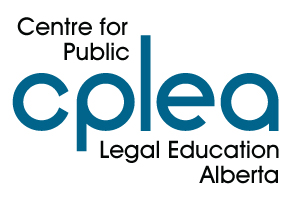There are laws to protect people from being treated unfairly, but it still happens sometimes. In dealing with these situations, it is often hard to know who is right, where to start, or what to do if the problem isn’t easily solved. This guide from the Centre for Public Legal Education Alberta describes seven steps to sorting out any legal problem. This 8 page PDF is available for free download.
You may want to consider resolving your conflict or disagreement outside of the court system. There are a variety of ways to do this, including arbitration, collaborative problem-solving, consensus-building, negotiation, facilitation, mediation and conciliation. The following resources can help you learn more about alternative dispute resolution.
Listings for organizations that help with alternative dispute resolution can be found in the section Where to Find Help - Alternative Dispute Resolution.
CPLEA Suggested Resources
Not sure where to begin finding answers to your questions. Get started with our suggested resources. See additional resources below for more information.
Alberta Resources
This website from Alberta Courts provides access to videos about the various Mediation programs available for the Civil (non-family) Mediation program and the Family and Child Intervention
Court and Justice Services (CJS) provides administrative support to all the courts within the province, including electronic legal information services through Alberta Law Libraries.
CJS offer: legal information services for the public on court procedures and legal services options; assistance with locating and filling out court forms; referrals to other community legal services, as well as dispute resolution services for child support, family and child medication, conflict intervention, family mediation, and civil mediation.
The Alberta Resotrative Justice Association (ARJA) is a group of organizations and individuals who practice Restorative Justice. The Association supports existing and new Restortaive Justice initiatives in Alberta.
The General Insurance OmbudService (GIO) is an independent, not-for-profit corporation that has been in operation since 2002 providing dispute resolution services for conflicts between complainants and their insurers in the areas of home, auto and business insurance. GIO’s neutral and professional mediators and experienced Information Officers help complainants and insurance companies work toward a solution that is in the best interests of both parties in a fair, independent and impartial environment. (PDF - 2 pages)
The Alberta Dispute Resolution Institute of Alberta is a not for profit organization which provides education and information to its members and the general public on solving disputes more effectively. They provide an annually updated Directory of Arbitrators and Mediators in Alberta.
This information is written for new and long-term Calgarians, homeowners or tenants looking for more information about their responsibilities within their neighbourhood. It is a quick reference to help you get started. See also: the Good Neighbour Practices Reference Guide which is an overview of municipal bylaws governing neighbourhood issues.
Alternative Dispute Resolution (ADR) is available through the Edmonton Police Sservice Professional Standards Branch to address citizen complaints involving the police.The page on the EPS website provides information on the process and benefits of the service.
When you are going to court, there are some procedures and protocols that you need to follow. You will find information here on court etiquette, court procedures, and appeals and transcripts.
Judicial Dispute Resolution (JDR) is a confidential pre-trial settlement conference led by a Justice of the Court of King’s Bench. The objective of a JDR is to resolve the dispute so a trial will be either unnecessary, or at most limited to those issues on which the parties do not agree.
The Mediation and Restorative Justice Centre (MRJC) is a not-for-profit organization devoted to building safer and peaceful communities. They provide mediation services to people and groups in conflict (neightbour disputes, family situations between siblings, parents, children or other family members), and restorative justice services to victims and offenders. These services are offered free of charge to anyone in the greater Edmonton region (Alberta).
For help in resolving disputes with neighbours you can contact the Mediation and Restorative Justice Centre for a listing of services and resources. See: MRJC – Neighbourhood Disputes – https://s3.amazonaws.com/mrjc/NeighborhoodDisputes+MRJC+Homepage.pdf
See also: https://www.law-faqs.org/municipal-law/neighbourhood-disputes/
This handbook was developed by the Edmonton based Mediation and Restorative Justice Centre. The Centre is a not-for-profit organization devoted to building safer and more peaceful communities.The handbook strives to provide you with constructive ideas for discussing these situations with your neighbour in a way that is easy for them to hear and will ensure a positive result.
This webpage on the Provincial Court of Alberta website provides information on alternative to going to court (mediation, and dispute resolution services), where to get help, and what you need to know when going to court.
The Residential Tenancy Dispute Resolution Service (RTDRS) offers landlords and tenants an alternative means of resolving serious disputes outside of court. The Service is designed to be faster, more informal and less expensive than the courts. A tenant or a landlord who has concerns related to an eviction, unpaid rent/utilities, security deposit, damages, repairs or other common disagreements can use the service.
Canada/Federal
This booklet from Family Law Education for Women explains alternative dispute resolution and when to use it in dealing with family law issues. (PDF - 8 pages)
From the website of the Canadian Judicial Council, this section talks about how litigation (starting a legal action and having your case heard in court) is only one way to resolve a dispute. You can resolve your dispute with or without the involvement of lawyers and without using the court system. These methods are called “alternate dispute resolution” (ADR).
The Collaborative Family Law Process is about cooperation, not confrontation where clients sign a contract agreeing not to go to court. It is mediation and problem solving with collaborative lawyers where clients try to understand each other. Each client is responsible for information gathering and solutions. This website features general information about collaborative law (definitions, process, resources) and a list of collaborative law professionals in Alberta.
The purpose of this online pamphlet from the Department of Justice Canada is to provide you with information to help you think of different ways of resolving your disputes without going to court. You will learn about some different dispute resolution options and how to find people who offer services in the field. You can use this information to find a process that best meets your needs.
Located at York University’s Osgoode Hall Law School, Toronto, Ontario the Institutes mandate is to pursue innovation and excellence in alternative dispute resolution and to advance accessible justice in Ontario, Canada and internationally.








Follow CPLEA